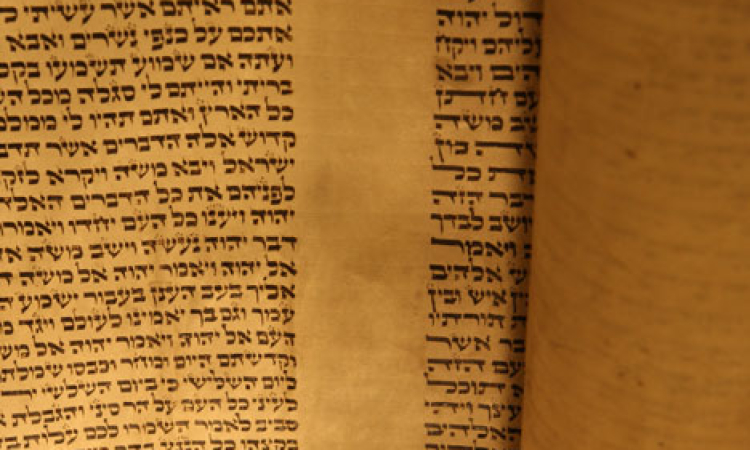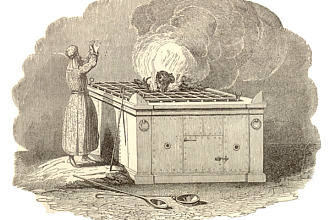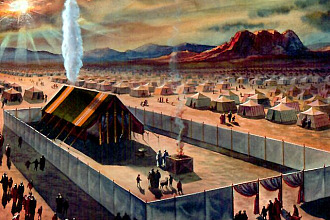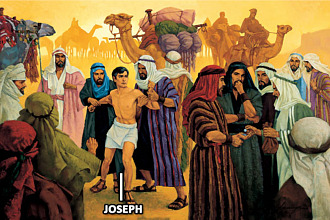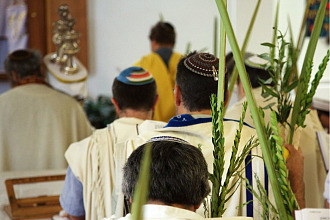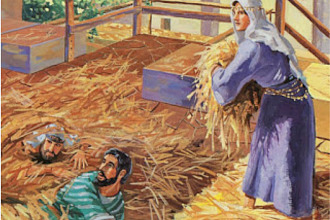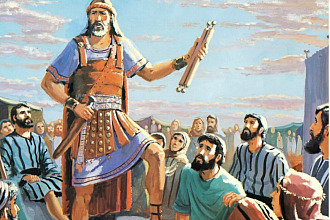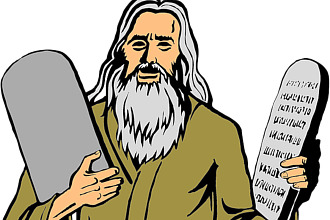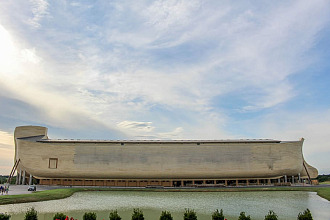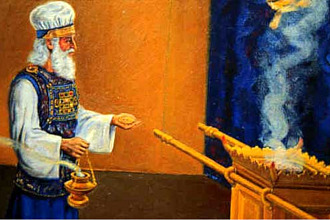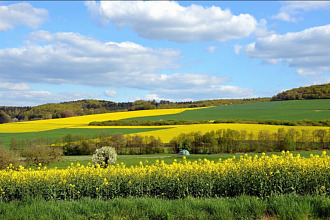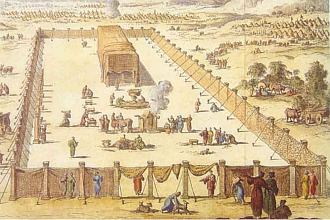Parasha for the Week: Naso Number 4:21 – 7:89
Haftara for the Week: Judges 13:2 - 25
Besorat Yeshua: Mark 4:10 - 20
Overview
The Torah assigns the exact Mishkan-related tasks to be performed by the families of Gershon, Kehat, and Merari, the sons of Levi.
A census reveals that over 8,000 men are ready for such service.
All those ritually impure are to be sent out of the encampments.
If a person, after having sworn in court to the contrary, confesses that he wrongfully retained his neighbor’s property, he has to pay an additional fifth of the base-price of the object and bring a guilt offering as atonement.
If the claimant has already passed away without heirs, the payments are made to a kohen.
If a husband suspects that his wife had been unfaithful he brings her to the Temple. A kohen prepares a drink of water mixed with dust from the Temple floor and a special ink that was used for inscribing Hashem’s Name on a piece of parchment. If she is innocent, the potion does not harm her; rather it brings a blessing of children. If she is guilty, she suffers a supernatural death.
A nazir is one who vows to dedicate himself to Hashem for a specific period of time. He must abstain from all grape products, grows his hair and avoids contact with corpses. At the end of this period he shaves his head and brings special offerings.
The kohanim are commanded to bless the people.
The Mishkan is completed and dedicated on the first day of Nissan in the second year after the Exodus. The prince of each tribe makes a communal gift to help transport the Mishkan, as well as donating identical individual gifts of gold, silver, animal and meal offerings.
"Birkat HaCohanim"
This week’s Parsha, Naso, is the first Parsha after the holiday of Shavuot, when we received the Torah. Naso is the longest Parsha in the Torah. The number three is found in this Parsha, as well as in connection with the holiday of Shavuot which we just celebrated.
Shavuot and the number three is described by our sages as follows:
“The Torah which is comprised of three parts (Torah, Prophets and Scriptures) was given to the Jewish nation which is comprised of three (Kohen, Levi, Israel). It was given in the third month (Sivan) through Moshe who is the third in his family (Miriam, Aaron, and Moshe).”
In Parshat Naso we also find the number three when G-d commands the Kohanim (Priests) to bless the people of Israel. This blessing is called “Birkat Kohanim” (priestly blessing). It is also called “Bracha Hamshuleshet” (three-fold blessing) because it contains three parts.
1) May the L-rd bless you and keep you;
2) May the L-rd make His face shine upon you and be gracious unto you;
3) May the L-rd lift up His countenance unto you and give you peace.”
The number three reminds us the “Shema Israel” where the name of G-d is repeated three times:
1) Shema Israel, Adonai (the L-rd)
2) Elohenu (Our G-d)
3) Adonai (The L-rd) echad (is one)
An allusion to our “triune” G-d: Father, Son, and Ruach Elohim.
A Jewish Prayer
I asked for strength, and
God gave difficulties to make me strong.
I asked for wisdom, and
God gave me problems to solve.
I asked for prosperity, and
God gave me brawn and brain to work.
I asked for courage, and
God gave me dangers to overcome.
I asked for love, and
God gave me troubled people to help.
I asked for favors, and
God gave me opportunities.
I received nothing I wanted.
I received everything I needed.
My prayers were answered
HAFTARA Judges 13;2 - 25
Parasha: In our text we have a long description of the Nazir: “The L-RD spoke to Moses, saying: … When either men or women make a special vow, the vow of a nazirite, to separate themselves to the L-RD, they shall separate themselves from wine and strong drink; they shall drink no wine vinegar or other vinegar, and shall not drink any grape juice or eat grapes, fresh or dried. … All the days of their nazirite vow no razor shall come upon the head; until the time is completed for which they separate themselves to the L-RD, they shall be holy…” (Num. 6:2,3,6).
Haftara: Our Haftara gives us an example of a Nazir, who did not decide to be a Nazir but who has been chosen by G-d to be a Nazir. It is the story of Samson. The text of the Haftara is about the announcement of his birth. “the angel of the L-RD appeared to the woman and said to her, “Although you are barren, having borne no children, you shall conceive and bear a son. Now be careful not to drink wine or strong drink, or to eat anything unclean, for you shall conceive and bear a son. No razor is to come on his head, for the boy shall be a nazirite to G-d from birth” (Judges 13:3-5).
A beautiful story, because in fact it is not one of the angels of the L-rd who appeared to Samson’s mother, but the angel of the L-rd, that means a very special angel who is very close to the L-rd. This angel appeared to Abraham before the destruction of Sodom and Gomorrah and in the text he is called in Hebrew “Adonai” (Genesis 18:1-3). This special angel was also the protector of Israel in the wilderness and had the power to forgive their sins (Exodus 23:20-22). This angel is called in the book of Daniel, Michael (Daniel 12:1) in Hebrew Mi-Ka- EL means the one “who (Mi) is like (Ka) G-d (EL)” and many theologians have seen in this angel the appearance of the Mashiach, the one who protects and saves Israel. “At that time Michael, the great prince, the protector of your people, shall arise… at that time your people shall be delivered, everyone who is found written in the book. Many of those who sleep in the dust of the earth shall awake, some to everlasting life, and some to shame and everlasting contempt. (Dan. 12:1,2)
Besorat Yeshua Mark 4:10 - 40
Parasha: “The L-RD spoke to Moses, saying: …When either men or women make a special vow, the vow of a nazirite, to separate themselves to the L-RD…” (Numbers 6:2).
Haftarah: Samson was a Nazir. “the boy shall be a nazirite to G-d from birth” (Judges 13:5).
Besorah: There is a parallel between the text of the Haftarah and this passage of the Besorah, because in the Haftarah the father of Samson, does not believe very much (Judges. 13:8), maybe he believes, but is skeptical. When the angel appeared a second time, not to the father, but again to the mother, she had to run to call her husband. In the Besorah, Yeshua, interpreting the parable of the sower, says that some believe, some doubt, and some don’t believe.
In this text of the Besorah we see also a parallel with the character of Samson. Samson knew exactly what the angel said to his mother before he was born, his mother followed all the orders of the angel. He knew that he was chosen to lead Israel to victory against the Philistines. But he chose the world and the love of a non believing woman. Like the parable of Yeshua said: “these are the ones who hear the word, but the cares of the world, and the lure of wealth, and the desire for other things come in and choke the word, and it yields nothing.” (Mark 4:18-20).

